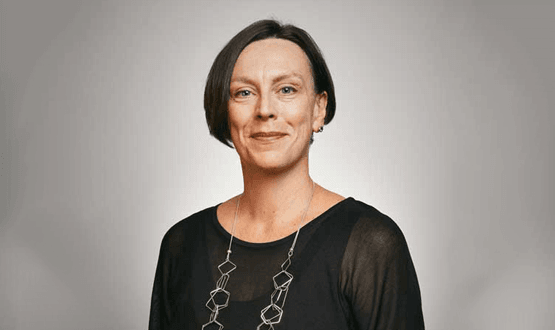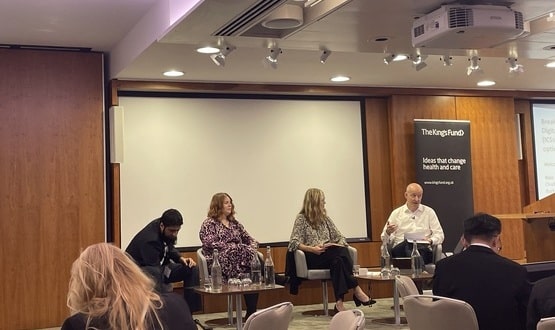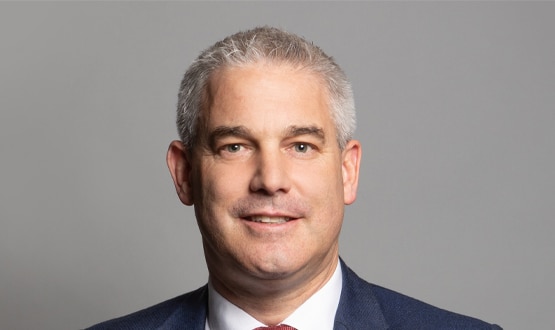Tara Donnelly: “My aim is to create an ecosystem for the digital companies of the future”

Tara Donnelly, chief executive of Health Innovation Network, talks to Shreshtha Trivedi about the importance of creating a digital ecosystem, concerns over Brexit, and why London is well paced to become a digital health hub.
Tara Donnelly thinks it’s quite astonishing that, in an age in which we can book an online pilates class or do grocery shopping via the internet, the NHS is still spending thousands of pounds on sending letters.
“It’s 2018 but we in the NHS are the biggest users of second-class postage stamps,” she points out.
Donnelly is chief executive of Health Innovation Network, the academic health science network (AHSN) for south London. It’s one of 15 AHSNs across England, all of which are tasked with driving adoption and spread of innovation across healthcare.
While Donnelly is obviously passionate about digital innovations, she admits it hasn’t been easy to get them to spread across the NHS. After all, the health service has a dubious record on innovation. Although there are pockets of excellence, the problem often lies in the lack of systematic spread of solutions.
Donnelly does believe the situation is slowly improving, though. And she thinks part of the reason is DigitalHealth.London, a programme set up two years ago with the aim of making the capital a digital health hub.
Health Innovation Network (HIN) joined hands with UCLPartners and Imperial College Health Partners – two other London-based AHSNs – and with life sciences initiative MedCity to create the programme.
Donnelly describes it as a “virtual institute for London”, which acts as a link between the NHS and small and medium sized enterprises (SMEs) and start-ups.
Accelerating progress
Its Accelerator programme specifically aims to speed up the adoption of digital technologies in the NHS, support individuals with great ideas to achieve spread, and deliver solutions that help clinicians and patients.
“We are looking for solutions that speak to the recognised needs of the NHS because it is surprising how many people can be beavering away on beautiful things which [solve something that] no-one in the NHS recognises as a problem,” she explains.
Since they receive around 130 applications for 25-30 places, the ideal candidates are usually those ones with developed rather than early stage ideas.
“We look at credible companies which can stand on their own two feet as our programme doesn’t offer any funding.”
And if the company is “credible”, Donnelly says the next question is: “Have they got the time commitment to fully participate and will they benefit from the networks we have?”
Being a navigator
She believes the biggest advantage of the Accelerator programme is in helping companies navigate the labyrinthine NHS ecosystem. The programme offers the backing of “navigators” – people with a clinical and/or digital background (but usually both) who are well-networked within the NHS.
Successful applicants receive one-on-one support sessions from navigators. Donnelly is quick to emphasise that it is not a passive activity. “They do unglamorous things: chasing up progress, setting up meetings [between companies and relevant people in the NHS].
“Basically they will do whatever it takes to get some pace into the process, which can be bureaucratic and slow.”
The Accelerator programme is designed like an academic year; it starts in September and comprises elements such as seminars, conferences, training sessions and networking events with people from clinical, business, IT or legal backgrounds. So naturally, it is rigorous.
“We are seeking to build a community of like-minded people across London,” explains Donnelly. “People feel isolated in their own organisations – we want to connect them through events and classes.”
In the long run, she sees the programme as a means of creating an ecosystem for the digital companies of the future. And she believes the capital is well placed to become a digital health hub.
“We are very fortunate in lots of ways. We’ve got fantastic educational institutions, excellent hospitals, we have a really dynamic workforce in health and it is a natural geography which people think of and want to succeed within.”
The Brexit effect
But Donnelly admits concerns over whether Brexit will result in workforce shortages for the NHS, and organisations not having the staff they need for innovation and improvement projects.
Brexit is also leading to potential issues over finances. DigitalHealth.London is currently receiving funds from the European Regional Development Fund, which Donnelly says has been crucial in supporting initiatives such as the Accelerator programme. She concedes it would have been impossible for them sustain their work purely on their NHS income.
But she believes there is some serious thought being given to how the country can do well in a post-Brexit world. While the European funding is for three years – and they have got another 17 months left – contingency plans are already in the pipeline.
“The Office for Life Sciences has recently made an investment into AHSNs to support innovators. So in a way it can be seen as the UK version of [European] innovation funding.”
Building on the success of DigitalHealth.London, the Accelerator is going to be extended to Manchester, the East Midlands, South West of England, Kent, Surrey and Sussex. Donnelly sees this as proof the programme is going strong and will continue to secure funding.
And she points to the positive impact the programme has already had. DrDoctor, for instance, was part of the first Accelerator cohort. It enables patients to book and change their hospital appointments via their smartphone, and NHS England has recently announced that it plans to support a nationwide trial of the setup.
Harnessing the smartphone revolution
Donnelly firmly believes it’s time the health service harnesses the smartphone revolution, arguing it could lead to increased clinical efficiency and better patient experience. Asked about her own favourite app, she points to Ski Track, which helps skiers like her track their routes and top speeds.
But doesn’t she think there has been an explosion of apps, leading to, some would say, app fatigue? And in terms of healthcare, shouldn’t there be some kind of regulation process? While not in favour of formal regulation, she does think it is important to have apps backed up by evidence and research.
“Out of 350,000 health apps in the market, 85 percent see fewer than 5,000 downloads. And 41 digital health apps account for nearly half of [all health] app downloads. So it’s a bit of wheat and chaff issue. However the NHS App Library is a good start, as it has 43 tried and tested apps.”
While getting funding for digital solutions can be challenging, Donnelly reveals that some of the tools at the Accelerator programme are quite cheap. She says that people often confuse them with expensive electronic patient record implementations or big infrastructure projects so are quite surprised to hear the (relatively) low costs involved.
“They provide an opportunity to think differently and use technology in a way to enable efficiencies and support people living healthier lives.”
Photo credit: Emile Holba





2 Comments
Extending the eco system to like minded companies is an excellent idea. By like minded I would like to think its companies that want to address real pain points for patients and clinicians. This includes greater patient access to services, reduced waiting times, options to accept amend or cancel appointments (early). Being offered coordinated appointments including, where appropriate appointments delivered in the home setting should be a standard baseline. Improving the lot of clinicians including reduced admin effort and deeper insights on patient care are all possible by connecting existing technologies together. Doing the simple things well, can yield terrific results. Tens of thousands of patients in London are booking clinical appointments online today. It would be great if the connected ecosystem could add even greater benefits to a much larger pool, of patients.
We can help with an ecosystem for the digital companies of the future Tara.
Comments are closed.